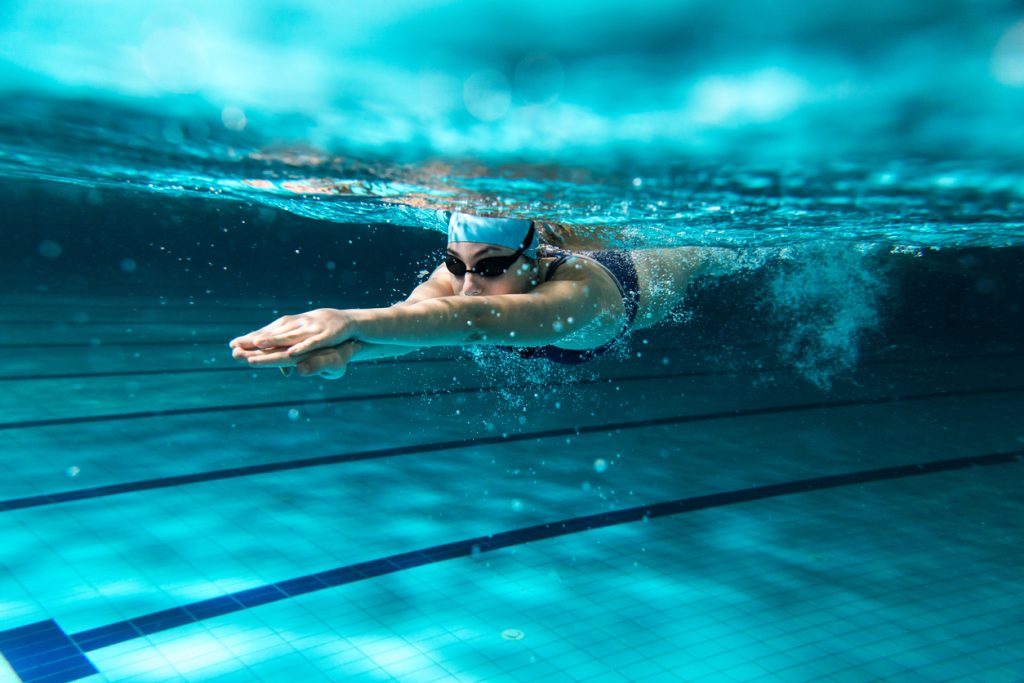Meet Sarah Beth, a compassionate therapist with a master’s degree in Clinical Mental Health Counseling and a bachelor’s degree in Health Promotion. With years of experience in the health field, Sarah Beth is passionate about helping you find balance and connection between your mental, physical, and spiritual self.
She’s here to work with you, setting achievable goals and supporting you in embracing your true self. Sarah Beth specializes in working with adolescents and young adults dealing with eating disorders, body dysmorphia, anxiety, depression, self-esteem, and body image challenges.
Her approach is rooted in empathy, understanding, patience, and encouragement, and she offers therapies like CBT, DBT, Narrative therapy, mindfulness techniques, and family therapy to meet your unique needs. Beyond her practice, Sarah Beth enjoys coffee shops, hiking, kayaking, art, Zumba, and spending quality time with loved ones. Keep reading to enjoy today’s blog from Sarah Beth.
Athletes can be vulnerable to developing an eating disorder. This can be due to many reasons. Athletes may find too much of their identity in their athletic performance, influencing their relationship with exercise, nutritional intake, and even the demands around the expectations of their sports training schedules in an unhealthy way.
When you are working to better support an athlete with an eating disorder there are some important concepts to remember:
1. Honor their identity, both as an athlete and as a human being, worthy regardless of their athletic performance.
Identity is a strong piece to an athlete and when working on decreasing eating disorder behaviors it can be difficult as they can sometimes feel like they are losing a sense of “their identity”. Support the athlete in untangling themselves from their eating disorder, along with untangling them from their worth as a human being solely based in their performance.
One of the scariest things for an athlete is having to learn how to separate themselves from their sport. This fear is usually a tangled web of long-time commitment to their chosen sport, fear of losing their skills or talents in their sport, and fear around the possibility of never being able to come back to their sport. Support the individual in building their identity, both on and off the field.
2. Be mindful in helping athletes understand that recovery and their sport cannot compete.
One of the biggest fears for an athlete is having to take a break from their sport. When an athlete hears the word “break” they usually turn to fear, thinking they may have to completely give up their sport. The reality around recovery when working with athletes is that recovery takes time and just as you would commit time to working at a sport, you also have to commit time to fully recovering oneself from an eating disorder. The discomfort through this is knowing that recovery may have to take the driver’s seat, in order to be able to return to their sport in a healthier way.
3. Work with athletes to help them identify that not all strength is developed in the gym or on the field.
This is a great reminder for athletes that their strength comes from within and that being the greatest on the field or strongest in the room is an incredible ambition and goal but just like building strength at the gym, you must build strength from within. The strength from within is going to be the driving force for one’s mental, spiritual, physical, and emotional self.
4. Work at helping athletes identify and relearn their true love of the sport compared to their performance and outcome in their sport.
Athletes are constantly striving to be their best and do their best in their sport. This can come from a certain expectation of performance placed on the athlete by their coaches, family members, teammates, or even friends. However, it is important to note that there is a difference between performing at one’s best ability and expecting perfection. When performance and perfectionism become blurred along the way, this can cause misguidance and distortion around the true reason someone fell in love in the first place. When an athlete can no longer see the true love of their sport, they begin to see pressure and punishment for themselves within their sport.
Athletes are incredible people. They are full of determination and passion. However, even through these incredible qualities it is important to remember that it can be extremely scary stepping out of one’s comfort zone and placing the power they have placed in their identity of being an athlete in the hands of someone else. This identity of being an athlete is all they know and the fear of losing themselves and their sport is extremely real and extremely deep. Be sure to embrace each athlete with compassion, kindness, and understanding. One of the most meaningful things you can do when loving an athlete is to come beside them and walk beside them while they navigate the discovery of not only themselves but themselves apart from their sport.
Affirmation of the day: “My identity is more than the distance I run, the weights I train with, the height I can jump, or even the number of laps I complete in the pool. My identity is strength, determination, and passion. My identity is all the things that make me me. My identity is me.”
We hope you found Sarah Beth’s insights on navigating the grief associated with chronic pain helpful. If her message resonated with you, this could be the perfect time to take meaningful steps toward your healing and peace. To initiate your work with Sarah Beth, please feel free to call our office at 615.510.3797 or click here to learn more.





